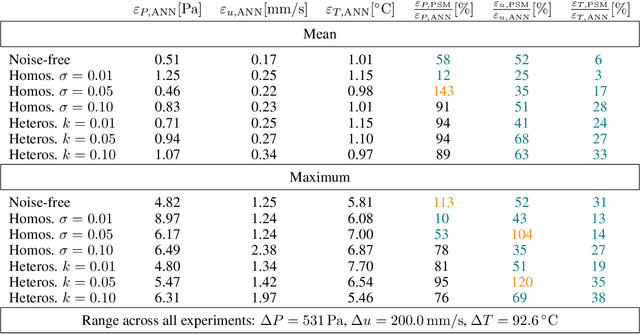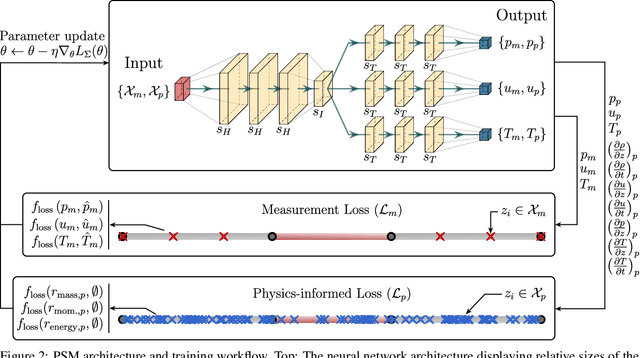Physics-informed State-space Neural Networks for Transport Phenomena
Paper and Code
Sep 21, 2023



This work introduces Physics-informed State-space neural network Models (PSMs), a novel solution to achieving real-time optimization, flexibility, and fault tolerance in autonomous systems, particularly in transport-dominated systems such as chemical, biomedical, and power plants. Traditional data-driven methods fall short due to a lack of physical constraints like mass conservation; PSMs address this issue by training deep neural networks with sensor data and physics-informing using components' Partial Differential Equations (PDEs), resulting in a physics-constrained, end-to-end differentiable forward dynamics model. Through two in silico experiments - a heated channel and a cooling system loop - we demonstrate that PSMs offer a more accurate approach than purely data-driven models. Beyond accuracy, there are several compelling use cases for PSMs. In this work, we showcase two: the creation of a nonlinear supervisory controller through a sequentially updated state-space representation and the proposal of a diagnostic algorithm using residuals from each of the PDEs. The former demonstrates the ability of PSMs to handle both constant and time-dependent constraints, while the latter illustrates their value in system diagnostics and fault detection. We further posit that PSMs could serve as a foundation for Digital Twins, constantly updated digital representations of physical systems.
 Add to Chrome
Add to Chrome Add to Firefox
Add to Firefox Add to Edge
Add to Edge